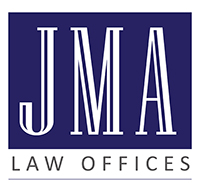What is an arraignment? An arraignment is where the accused pleads, in ninety-nine percent of the cases, not guilty to the charged crimes. In most misdemeanor cases, we can waive the client’s appearance at that setting by filing a written waiver with the Court, which when signed by the Judge, the Client does not have to appear saving them from having to miss work. Felony arraignments are not often waived, but I will always ask the State, if they would be willing to waive an arraignment. Arraignments are important because they advise the client of the charges they are being charged and the potential penalties of those charges. Most often, we waive the “formal” reading of the charges and plea not guilty. The Court will also set conditions of release, which we’ll discuss in a later post. Finally, the arraignment triggers an important deadline which is the right to a jury trial, in metropolitan/magistrate court and in both Courts the right to excuse the assigned judge. If you have been charged with a crime, please call at 505-247-9500, to schedule a free consultation. This is not legal advice and does not create an attorney-client relationship.

